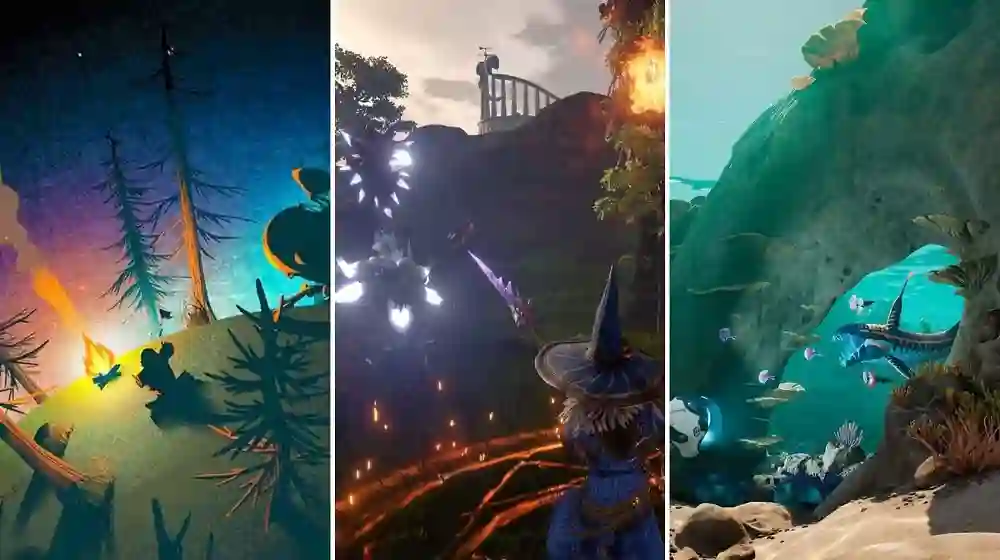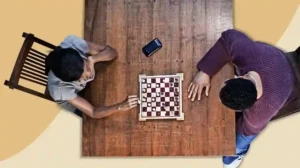Tips for Navigating Open-World Games Without Getting Lost

Open-World Games, right? These sprawling virtual playgrounds are a dream come true for anyone who loves adventure. But let me tell you—after a few hours of blindly wandering into hostile territories or running in circles (don’t even ask about my first Skyrim run), you start thinking, “I need a map, a compass, and maybe a mentor.” Navigating these massive worlds can be a bit much, so here’s how you can stay on track.
Fast forward past my first failed attempts in Breath of the Wild, and let’s dive into this. I learned the hard way, y’all—don’t let it happen to you.
1. Use Your Map Like a Lifeline
In Open-World Games, maps are more than just a pretty interface. They’re your ticket to not looking like a chicken with its head cut off. If I had a nickel for every time I got hopelessly lost in Red Dead Redemption 2 (seriously, I thought the nearest town was that way—spoiler: it wasn’t), I’d be able to buy a mansion in-game.
- Check it Often: Like my aunt’s weathered GPS system that still gets us lost on road trips, the map in Open-World Games can be surprisingly helpful—if you keep checking it. Sometimes it updates with key points or even hidden quests.
- Mark Your Territory: I can’t stress this enough. Marking spots on your map isn’t just for OCD gamers like me. If you find an interesting location, jot it down—don’t be like me, getting sidetracked by every new area.
- Fast Travel: There’s always this temptation to hike across the world. Don’t do it, man. Fast travel. It’s there for a reason.
Anyway, here’s the kicker: you can make your map work for you. It’s not just a static thing. Make it dynamic, and you’ll thank me later.
2. Focus on Main Quests (Unless You’re Feeling Brave)
Okay, real talk. Side quests are the candy of Open-World Games—they look irresistible, but man, they’ll get you into a whole new bag of worms. I’m telling you—don’t get distracted by every shiny thing. At least not at first.
Stick to the Big Stuff
- Main Story First: This might sound boring to you “side-quest adventurers,” but hear me out. Main quests are designed to guide you. They’re good for you. Trust me, I wandered so far off the main road in The Witcher 3 once, I ended up helping a guy with a cabbage farm for four hours. And that wasn’t even on the map.
- You’re Gonna Want a Checklist: My quest log used to be an absolute mess until I realized tracking multiple quests just means I forget half of them. Focus on the main mission, then knock out side quests when you need a break.
Y’all, I know the urge to go everywhere is strong. But trust me—take it one thing at a time. Your future self will thank you when you’re not standing in the middle of nowhere wondering why you’re on a mountain with a chicken.
3. Use Landmarks to Keep Your Bearings
I don’t care if it’s a tree, a castle, or a giant, terrifying dragon’s skull—I always need a landmark. I’ve gotten lost so many times in The Elder Scrolls V: Skyrim that I almost gave up. But after a while, I realized, “Hey, there’s that creepy mountain again.” If you find something distinctive, use it as a point of reference.
- Find Big Things: Look for giant statues, castles, or even weather patterns. These are the beacons of hope in the world of Open-World Games.
- Not All Landmarks Are Built Equal: I remember getting lost in GTA V, trying to find a specific mission. “Oh yeah, just head to that bridge,” I told myself, but guess what? There are multiple bridges. It was chaos.
- Rivers Are Your Friends: Rivers can be your guide. They usually lead to important areas. So next time you’re lost in a jungle (shoutout to Far Cry), just follow the water.
Fun fact: When medieval explorers got lost at sea, they used stars as navigation. It’s kinda like that, but with way more guns.
4. Check Your Compass
Sometimes, the only thing standing between you and oblivion in Open-World Games is a compass. But instead of thinking of it as an afterthought, treat it like a trusty sidekick. My first Assassin’s Creed adventure? Let’s just say I didn’t realize the compass pointed directly at my objectives. Took me way too long to figure that out.
- Pointing the Right Way: In some games, the compass will literally point you straight to the next mission. So no more wandering aimlessly while cursing the heavens.
- Adjust and Adapt: This is a small thing, but adjusting your compass orientation can sometimes make all the difference. If you’re not sure where you are, change the way you’re facing. Small moves, big results.
Honestly, I used to think the compass was some useless decoration on the screen. Nah—after my third Legend of Zelda adventure, I finally figured it out. Never going back.
5. Keep Your Inventory Under Control
Oh, the chaos of a cluttered inventory. I’ve been there—trying to sift through five million items in Minecraft or Horizon Zero Dawn, looking for a specific arrow, while half the map tries to kill me. It’s chaos.
- Don’t Hoard: Yes, I’m talking to you. I used to hoard everything. Why? I was convinced that one day I’d need 72 torches. Turns out, nope. In Open-World Games, it’s okay to let go of items that aren’t useful.
- Use Your Tools: In most games, there are items that help you navigate. Map scrolls, compasses, enchanted stones—whatever you’ve got, use it. But seriously—ditch the duplicates.
It took me forever to realize that keeping my inventory light actually made my gameplay smoother. It’s like cleaning out your garage—painful at first, but soooo worth it.
6. Make Use of Navigation Aids
Look, I get it. You want to be a hero. You want to explore the vast wilderness without any help. But let’s be real—some Open-World Games throw in navigation aids for a reason. Use them.
- Mini-Maps Are Your Friends: I know, I know—you think you don’t need them. But here’s a tip: you do. Most Open-World Games feature mini-maps, and let me tell you—they make life way easier.
- Pathfinding: Some games literally draw the path for you. You’re gonna want that. Trust me. The Witcher 3 had me running in circles like a lost puppy—until I realized, oh, I can just follow the damn path. Brilliant.
I still remember my first Red Dead Redemption 2 run, where I spent hours getting lost in the woods—until I finally clued into the map’s fast travel options. You do need that stuff.
7. Take Breaks and Reorient Yourself
Sometimes, you just gotta step back. In the chaos of trying to beat side missions, unlock chests, and battle random monsters, it’s easy to forget where you’re headed. I’ve been there, trust me.
- Pause for a Sec: Take a moment to look around, recheck your quest log, and figure out where you’re supposed to go next.
- Return to Familiar Areas: When all else fails, go back to a spot you’ve visited before. The smell of Walmart’s parking lot rosemary on June 7th, 2019 still haunts me, but it did help me reorient my lost Skyrim character once.
Sometimes, just getting your bearings helps reset the whole game for you.
8. Learn From Your Mistakes
I got lost in The Elder Scrolls Online once for so long that I swore the game was trolling me. In reality, I was just too impatient to use the in-game map properly. Lesson learned.
- Track Where You Got Lost: The next time you get lost, note it down. If you need to, keep a little notebook—hey, it works.
- Accept It: Mistakes happen. Getting lost in Open-World Games is basically a rite of passage at this point.
But hey—if you’re anything like me, you’ll laugh about it when you’re drinking coffee and telling your friends how you spent 3 hours wandering aimlessly. You’ll laugh, right? Right.
Conclusion: Mastering Navigation in Open-World Games
Navigating Open-World Games isn’t about perfection—it’s about learning and adapting. So here’s a recap of the pro moves:
- Use Your Map: It’s not just for decoration, trust me.
- Focus on Main Quests: Side quests can wait.
- Look for Landmarks: Trees, mountains, that weird abandoned village with 3 chickens.
- Use Your Compass: It’s not just a fancy tool.
- Organize Your Gear: Nobody needs 87 shields.
- Leverage Pathfinding: Take advantage of in-game aids.
- Take Breaks: Step back and laugh at your mistakes.
Look, it’s all about making the most of the massive, beautiful world of Open-World Games without getting overwhelmed. So go forth, explore, and whatever you do—don’t forget to save.







